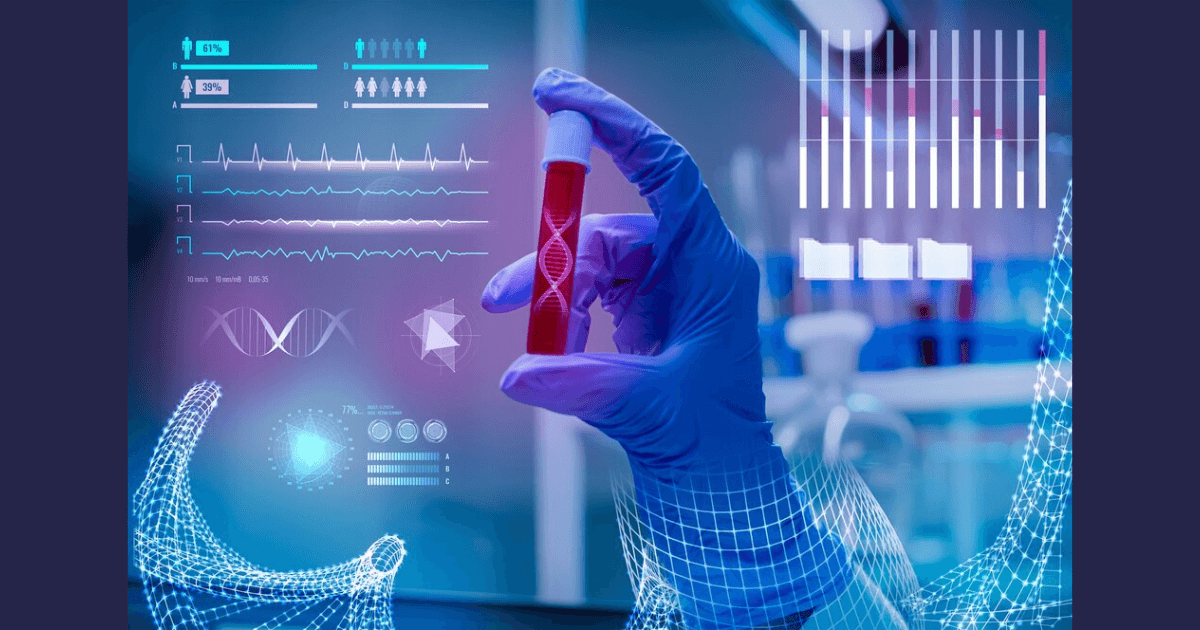Source: www.indiatoday.in
Digital healthcare has revolutionized medical records, providing individuals with tools to understand their genetic health risks through user-friendly interfaces and intelligent algorithms. In India, the healthcare system faces unique challenges in providing accessible and affordable care to its vast and diverse population. While the digital health landscape is in its early stages, technology, including telemedicine, is bridging gaps and extending access to remote areas. Digital health records, including Personal Health Records (PHR), Electronic Medical Records (EMR), and Electronic Health Records (EHR), streamline information flow and improve patient care.
Digitizing health records in India presents challenges related to data standardization, patient digital literacy, and infrastructure limitations. MyDigiRecords, a digital health platform, aims to address these challenges, offering opportunities for advanced analytics, early intervention, and telemedicine access. Genetic insights and proactive health choices are also unlocked through digital records. The author’s diverse background and entrepreneurial experience have contributed to the growth of MyDigiRecords, emphasizing the importance of adaptability and a clear vision in the startup landscape.
In the age of digital healthcare, the transformation of medical records from traditional paper files to comprehensive digital databases has unlocked a realm of possibilities for individuals seeking to decode the enigmatic realm of their genetic health risks. These digital archives, with their user-friendly interfaces, intelligent algorithms, and extensive data integration, serve as powerful tools for individuals to gain a deeper understanding of their genetic predispositions and potential health vulnerabilities.
GLOBAL CONTRASTS IN HEALTHCARE CONDITIONS:
India’s healthcare system stands apart from many other nations due to its unparalleled challenges and opportunities. With a vast and diverse population, India grapples with the task of providing accessible and affordable healthcare to all while maintaining high-quality medical services in urban centers. Infrastructure poses another contrast, as advanced hospitals thrive in cities, yet rural regions lack even basic healthcare facilities. In terms of digital health, India is in the nascent stages of adopting electronic health records. Nonetheless, technology is proving to be a bridge, with telemedicine and digital health platforms extending healthcare access to remote areas. India’s healthcare evolution, while still in its infancy, presents an immense potential to lead the global healthcare landscape.
WHAT ARE DIGITAL RECORDS?
Digital health records encompass a patient’s medical data, comprising their history, diagnoses, medications, and treatment plans. Three main types include Personal Health Records (PHR), Electronic Medical Records (EMR), and Electronic Health Records (EHR). PHRs, often online, permit patients to input health metrics, ensuring personalized care. EMRs replace paper files, enhancing efficiency but usually staying within a single practice. EHRs, a step further, facilitate broad sharing among various healthcare providers within a unified system, promoting seamless care coordination. These digital records hold substantial promise in today’s healthcare landscape, streamlining information flow and improving patient care.
Navigating the Indian Healthcare Landscape: MyDigiRecords’ Approach to Distinct Challenges and Opportunities Digitizing health records in India presents both distinct challenges and remarkable opportunities. The challenges stem from the diverse healthcare landscape, spanning rural clinics to urban super-specialty hospitals, with obstacles like data standardization, patient digital literacy, and infrastructure limitations. Most patients still rely on paper records, making user education a priority. However, the sheer volume of data holds immense potential. Digital records enable advanced analytics, predicting health trends and individual risks, and enhancing preventive care. Patients can access their records, fostering active involvement in healthcare decisions and reducing administrative burdens on providers, leading to faster, error-free services and cost savings. Digitization also extends telemedicine benefits to remote areas. The impact of this transformation is significant, promising a brighter and healthier future for all Indians through platforms like MyDigiRecords.
UNLOCKING GENETIC INSIGHTS:
Digital health records can store comprehensive patient histories, including genetic tests and family medical histories. By analyzing this data, healthcare providers can identify potential genetic risks, offer tailored advice, and even predict susceptibility to certain conditions. Individuals who are empowered with knowledge, can make proactive health choices and take steps to make early interventions.
LEARNINGS FROM VARIED ROLES:
My diverse background and multifaceted experiences have endowed me with a valuable skill set that has significantly contributed to the rapid growth of MyDigiRecords. My academic tenure refined my problem-solving abilities and fostered innovative thinking, while research skills kept us abreast of cutting-edge developments in digital health records. The academic world’s emphasis on continual learning and adaptation has kept MyDigiRecords dynamic and forward-looking. Moreover, my extensive academic network has been pivotal in forging partnerships and collaborations.
Entrepreneurship has taught me the art of calculated risk-taking and the need for flexibility in the ever-changing startup landscape. It reinforced the importance of a clear vision and unwavering persistence. MyDigiRecords, despite challenges, thrives on its commitment to the mission and adaptability. Each of these roles has enriched me with unique skills and insights, collectively shaping my leadership at MyDigiRecords and propelling our success.

